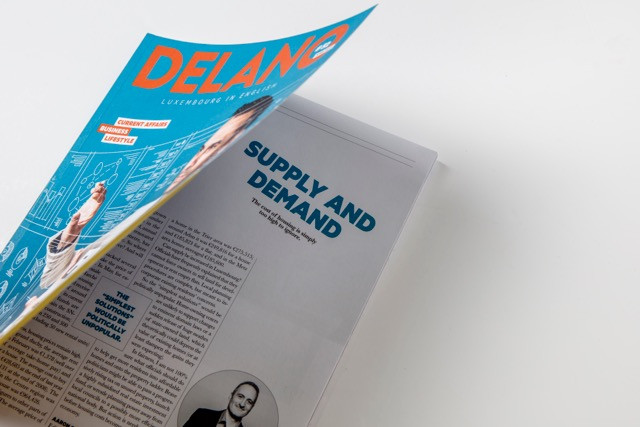Luxembourg’s population has grown 24% over the past decade; the number of residents could surpass 1m in the 2060s. Yet during the same period, annual building permission for new and renovated housing, measured by cubic metre, has remained more or less stable. So where will all these new residents live? And will they be able to afford it?
The government has backed several worthwhile projects to make the price of housing more accessible. In May, for example, the Société Nationale des Habitations à Bon Marché (national affordable housing company) said it would receive a capital injection of around €10m, about 20% of its current total. Increased funds are needed to maintain the SNHBM’s pace of construction; it builds between 250 and 300 new homes (including 50 new rental units) each year.
Nevertheless, housing prices remain high. Across the grand duchy, the average rent for a flat in February was €1,378 (well over a third of average take-home pay) and €2,357 for a house. The average cost to buy a home was €428,685 at the end of last year (versus €305,131 at the end of 2008). The cost of a flat in the Centre region was €577,513 and a house was €964,426.
Compare those figures to other parts of the Greater Region. The average price of a home in the Trier area was €275,515; around Arlon it was €249,816 for a house and €185,823 for a flat; and in the Metz area homes averaged €185,600.
Can supply be increased in Luxembourg? Officials have frequently explained that they cannot force owners to sell land for development or rent empty flats. Local planning procedures are complex, but meant to incorporate existing residents’ concerns.
So the “simplest solutions” would be politically unpopular. Home-owning voters are unlikely to support changes to eminent domain laws or a sudden release of huge swathes of state-owned land, which theoretically could depress the value of existing homes (or at least dampen the gains they were expecting).
In fairness, I am not 100% sure what officials should do to help get more residents into affordable homes and onto the property ladder. Brave politicians might be able to pass a progressively rising tax on unused property, launch a highly subsidised real estate investment fund, or wrestle planning power away from local councils to a possibly more efficient national body. But action is needed soon, before housing costs become a brake on the economy.
Have an idea to help make housing in Luxembourg more affordable? Talk to me about it on Twitter.
